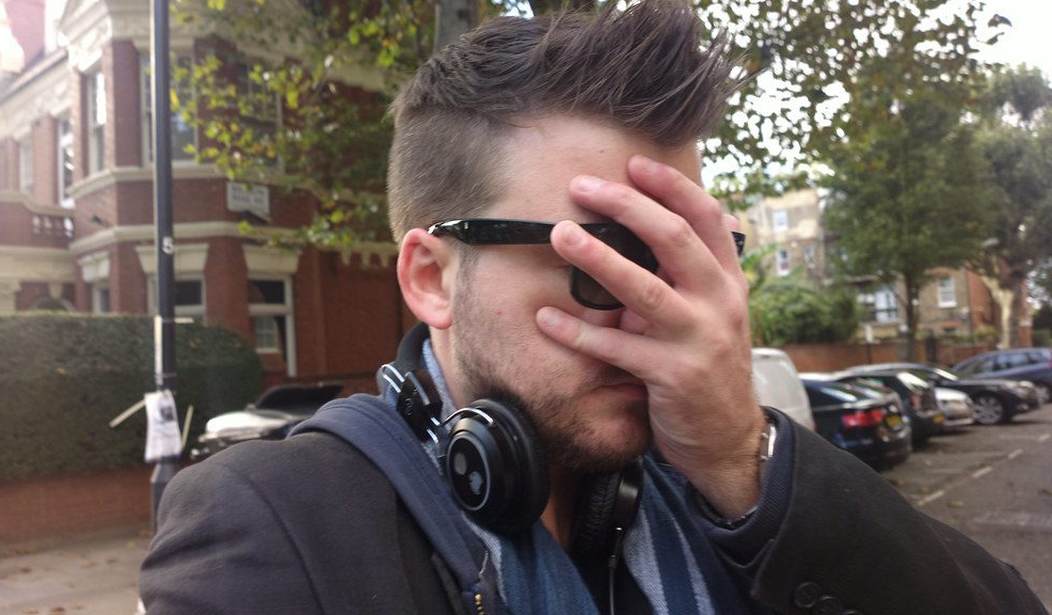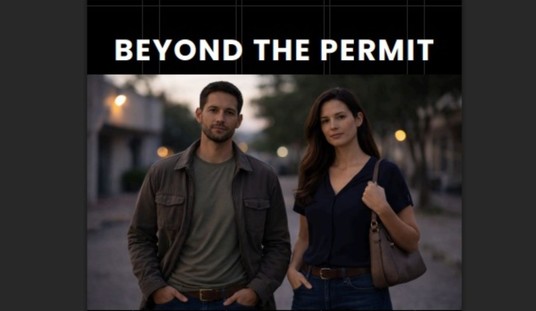Public service announcements, or PSAs, are those commercials that try to tell you what you should do but aren’t about making a profit. They’ve included a lot of things over the years, with one notable example involving an egg, a frying pan, and your brain on drugs.
They’re about trying to sell ideas, not products.
Sometimes, they’re powerful, like the anti-littering campaign featuring the crying Native American. Other times, they’re just not.
Yet over at the Atlantic, one writer thinks anti-gun-violence PSAs could take a lesson from anti-smoking ones.
And whereas most public-health campaigns target the end user, potential shooters are unlikely to be persuaded by such messages. Violence-prevention ads must instead make a more indirect appeal, conscripting community members to help stop shootings before they happen. How? Opinions differ. There is no single or obvious call to action that would ease what amounts to a systemic crisis. All of these factors add up to a heavy burden for a format that wasn’t designed to induce social change. Many grassroots groups know this, but they’re nonetheless emboldened by past campaigns that did alleviate social ills. And some are experimenting with new techniques and more pointed strategies, taking cues from one influential mission in particular: the fight to end smoking.
Cigarettes posed the ultimate public-health dilemma for much of the 20th century. Not only were cigarettes addictive, affordable, and ubiquitous, but smoking was also a personal choice that, to many, verged on a political right. Tobacco cultivation predates the existence of the United States, and cigarette manufacturers seized on that sense of heritage, gesturing toward a consistent, alluring myth: that smoking was innately American. “Marlboro Man, freedom, patriotism … there’s all this Americana imagery around smoking going back a hundred years,” Tim Nudd, the editor in chief of the Clio Awards (essentially the Golden Globes of advertising), told me.
…
The gun lobby isn’t so different, according to Michael Siegel, a public-health professor at Tufts University. “Thirty years ago, the tobacco industry was like the NRA,” he told me. Cigarette makers had a strong grip on Congress and a history of fending off critics with the same kind of hollow, nationalist copy heard in its commercials. Decreasing Americans’ dependence on cigarettes demanded a widespread attitude adjustment that lawmaking alone couldn’t deliver—a belief that smoking wasn’t just dangerous but societally toxic.
The NRA and its political allies have maintained a similar legislative impasse, though one aided by gun ownership’s status as a constitutionally protected right, not just a culturally imagined one. Decades of NRA doctrine have also helped redraw social lines, gerrymandering new boundaries between people whose core values might not otherwise be in conflict. To break new ground, gun-violence-prevention advocates want to reframe the story of guns in America by lifting a page from the anti-smoking playbook.
In other words, the NRA is basically evil like Big Tobacco.
Except the tobacco industry knew their products were harmful and tried to hide that from the public, while the firearm industry has never pretended their products were harmless. That’s kind of the point of them, actually.
Therein lies a key difference between guns and the tobacco industry.
Another such difference lies in just who is being hurt by who.
The tobacco industry sold a product that harmed the user as well as others in the general vicinity, but primarily the user themselves. Anti-smoking PSAs focused primarily on things like this and coupled with the revelations about the tobacco industry’s attempts to cover up what they knew about the harm their products were causing, it drove a lot of people to push away from cigarettes.
Yes, there were policy changes that also resulted from a new anti-smoking attitude, but without more and more people stepping away from cigarettes, none of that would have likely been possible.
Guns, though, are different. This isn’t a lawful product being used lawfully that results in people being killed. These are products being stolen from law-abiding people and then being used for activities already banned under the law.
How is a PSA going to do that?
The simple answer is that it’s not. Those who represent the problem also think they’re perfectly justified in their actions. They know so-called gun violence is wrong in general, but they tend to think of themselves as an exception. They’ll scream about someone they care about being killed, but it’s different when they pull the trigger.
How is a PSA going to change that?
Further, for all the author’s bluster about how PSAs destroyed the cigarette industry, there are still plenty of smokers. The tobacco industry may not make what it once did, but it still is looking at $912 billion in revenue this year alone.
Smoking didn’t stop. You just don’t see it.
That’s kind of what happens with guns, though. The illicit trade is simply out of sight of most people. All they see is the lawful buying and selling of firearms, so that’s what sticks in their minds.
PSAs aren’t going to change that.
What’s more, I think they know it. I think that this isn’t really about public safety so much as doing what they did to smokers themselves. They want to make gun owners a pariah. They want to stigmatize gun owners so as to keep us from speaking up. If we don’t speak up, we can’t fight back against anti-gun laws.
And that’s what this is really about, in my humble opinion.
Don’t fall for it.








